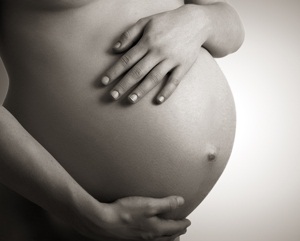
A Caesarean delivery might put women at a slightly increased risk for ectopic pregnancy and stillbirth in future pregnancies, a new study finds.
However, the risk for either complication is still very low, researchers said.
The researchers analyzed data from nearly 833,000 first-time mothers in Denmark. Those whose baby was delivered by Caesarean section had a 14 percent higher rate of stillbirth in their next pregnancy than those who had a vaginal delivery. A stillbirth is described as the death of a foetus at more than 20 weeks of gestation.
Future ectopic pregnancy
That works out to an absolute risk increase of 0.03 percent. That means that for every 3,000 Caesarean deliveries, there would be one extra stillbirth in future pregnancies, the researchers explained.
They also found that women who had a Caesarean delivery for their first baby were 9 percent more likely to have a future ectopic pregnancy than those who had a vaginal delivery.
That's an absolute increased risk of 0.1 percent, which means that for every 1,000 Caesarean deliveries, there would be one extra ectopic pregnancy in future pregnancies.
In an ectopic pregnancy, the fertilized egg grows in the fallopian tubes or other locations outside the uterus. It typically results in loss of the foetus and can be fatal for the mother.
Having a Caesarean delivery for a first baby did not increase women's risk of miscarriage in future pregnancies, according to the researchers at University College Cork in Ireland and Aarhus University in Denmark. A miscarriage is generally described as the spontaneous loss of a foetus before 20 weeks of pregnancy.
Worldwide increase
The study appears in the journal PLoS Medicine.
"The findings of the current study are particularly important for expectant mothers as well as health care professionals as Caesarean section rates are increasing significantly worldwide," study author Louise Kenny said in a journal news release.
While the study finds an association between C-sections and failed pregnancies, it does not prove a direct cause-and-effect relationship.
More information
The US National Institute of Child Health and Human Development has more about Caesarean delivery.
Read more:
Shift in Caesarean sections in US
Most twins can be born without a C-section
Persistent pelvic pain after C-section




 Publications
Publications
 Partners
Partners










